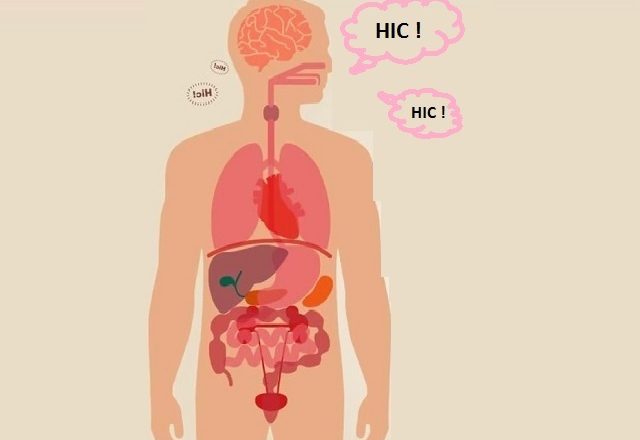What is hiccup? What causes hiccups? How to get hiccups to stop, how is hiccup treated? frequently asked questions and answers.
WHAT IS HICCUP?
A hiccup is a sudden, involuntary contraction of the diaphragm muscle. This can cause a person to inhale abruptly, which can produce the characteristic “hic” sound. Hiccups are usually harmless and will resolve on their own, but they can be annoying and disruptive. Some people find that certain techniques, such as holding their breath or drinking a glass of water, can help stop hiccups. In some cases, hiccups can be a sign of an underlying medical condition and may require further evaluation.
WHAT CAUSES HICCUPS?
The exact cause of hiccups is not well understood, but they are thought to result from involuntary contractions of the diaphragm muscle. The diaphragm is a large muscle that separates the chest from the abdomen and plays a crucial role in breathing. When the diaphragm contracts suddenly, it can cause a person to inhale abruptly, producing the characteristic “hic” sound.
Hiccups can be triggered by a variety of factors, including:
- Eating or drinking too quickly
- Eating or drinking very hot or cold beverages or foods
- Eating spicy or acidic foods
- Swallowing air while eating or drinking
- Excitement or stress
- Smoking or drinking alcohol
In some cases, hiccups can be a sign of an underlying medical condition, such as gastroesophageal reflux disease (GERD), a digestive disorder that affects the lower esophageal sphincter. Hiccups can also be a side effect of certain medications or can occur as a result of surgery or other medical procedures. If your hiccups persist for an extended period of time or are accompanied by other symptoms, you should see a doctor.
HOW TO GET HICCUPS TO STOP?
There are several potential remedies for hiccups, although the effectiveness of these methods may vary from person to person. Some common techniques for getting rid of hiccups include:
- Holding your breath: Try to hold your breath for as long as possible. This can help relax the diaphragm and stop the hiccups.
- Drinking water: Sipping water slowly or swallowing a mouthful of water quickly can help stop hiccups. Some people find that drinking water from the opposite side of the glass or drinking from a glass with a straw can be more effective.
- Eating or drinking something sweet: A spoonful of sugar, a small amount of honey, or a sip of sweetened lemon juice can help relax the diaphragm and stop hiccups.
- Pulling on your tongue: Gently pulling on your tongue or swallowing your tongue (as if trying to touch the tip of your tongue to your chin) can help stop hiccups.
- Massaging your neck or face: Gently massaging your neck or face, especially the area around your Adam’s apple, can help stop hiccups.
- Stimulating the back of your throat: Try sticking out your tongue and gently touching the back of your throat with the tip of your tongue. You can also try gargling with water or lightly tickling the back of your throat with a cotton swab.
If your hiccups persist for more than a few hours, or if they are accompanied by other symptoms such as chest pain or difficulty breathing, you should see a doctor.
CHRONIC HICCUPS?
Chronic hiccups are defined as hiccups that last for more than 48 hours. Hiccups are usually a benign and temporary condition, but in rare cases, they can become chronic and persist for weeks or even months. Chronic hiccups can be disruptive and can interfere with a person’s ability to eat, drink, and sleep.
The exact cause of chronic hiccups is not well understood, but they are often associated with an underlying medical condition or medication. Some potential causes of chronic hiccups include:
- Gastroesophageal reflux disease (GERD)
- Gallstones
- Kidney or liver failure
- Lung cancer or other lung diseases
- Stroke
- Multiple sclerosis
- Brain or spinal cord tumors
- Medications, such as narcotics, benzodiazepines, and some antidepressants
If you have chronic hiccups, it is important to see a doctor for a proper evaluation. They will take a medical history, perform a physical examination, and may order additional tests to determine the underlying cause of your hiccups. Treatment for chronic hiccups may involve addressing the underlying cause, if one can be identified, or trying different remedies to stop the hiccups. In some cases, medication may be necessary to control chronic hiccups.
For more information on health and a detailed review of natural treatment methods, also visit the attached category.











Hata!
Yorumunuz Çok Kısa, Yorum yapabilmek için en az En az 10 karakter gerekli